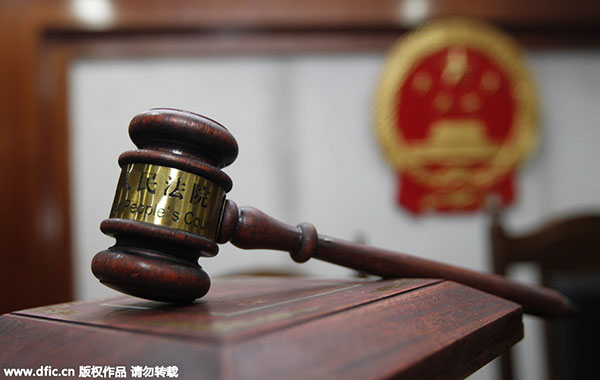Justice counts in every case
(China Daily) Updated: 2015-12-16 08:28
 |
|
A gavel in a court. [Photo/IC] |
There is a popular assumption that the judiciary is partial to the powerful, as people have seen cases where the law was apparently bent in favor of the privileged.
So the proposal by Beijing's supreme court to commute the death sentences of Gu Kailai and Liu Zhijun to life imprisonment should have triggered rumors of "preferential treatment".
It has not.
The apparent absence of a public opinion backlash is unusual, but not beyond understanding.
Unlike in many previous, similar cases, the Beijing court made public its decision and gave reasons: Gu, the wife of Bo Xilai, the disgraced former high-ranking Party official, and Liu, the former minister of railways, behaved well during their two-year reprieves and thus qualify for their sentences being reduced in accordance with law.
This is transparency at work.
Some officials are accustomed to complaining about the public being unreasonably incredulous. But that is not fair. People are incredulous when they are either denied access to information that falls within their right to know or left in the dark as to how judicial decisions have been made.
The recent hoopla about the 10-and-a-half-year sentence for a college student found selling birds of endangered species under State protection was a case in point. It turns out the court neither misread nor misapplied the law. But the online commotion did not subside until it became clear the student had been knowingly selling protected birds.
The authorities want a quick fix for the judiciary's lack of credibility. But there is no shortcut to achieving that; the public needs to feel there is justice in every court judgment.
That is not only about faithful application of the law. It is also about subjecting court proceedings and rulings to public scrutiny.











